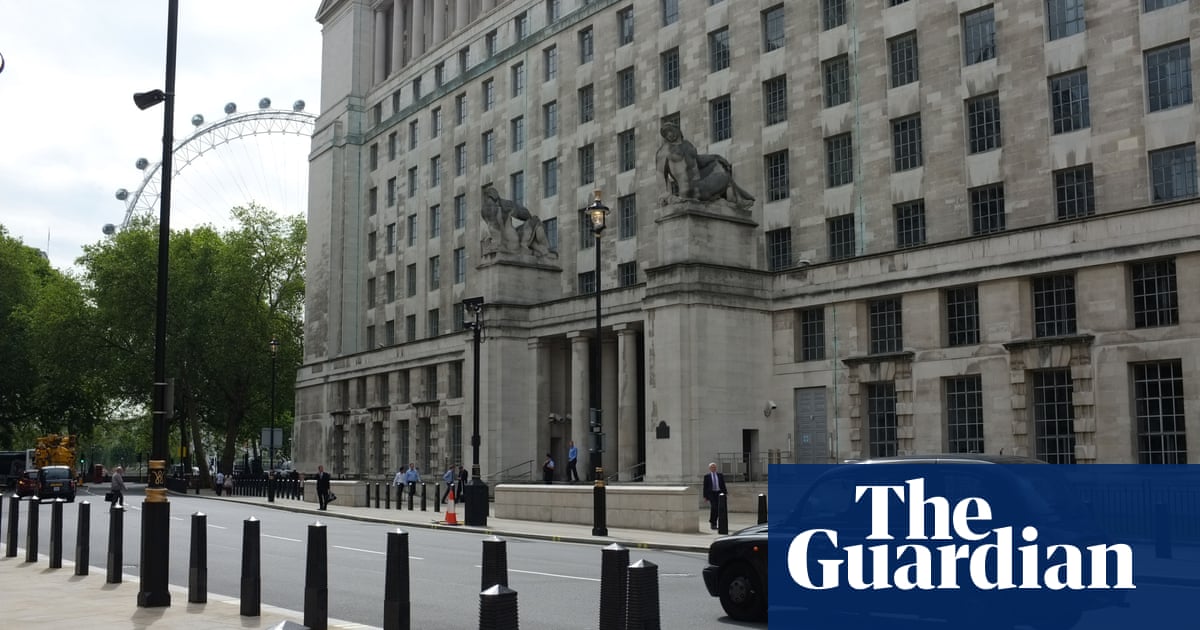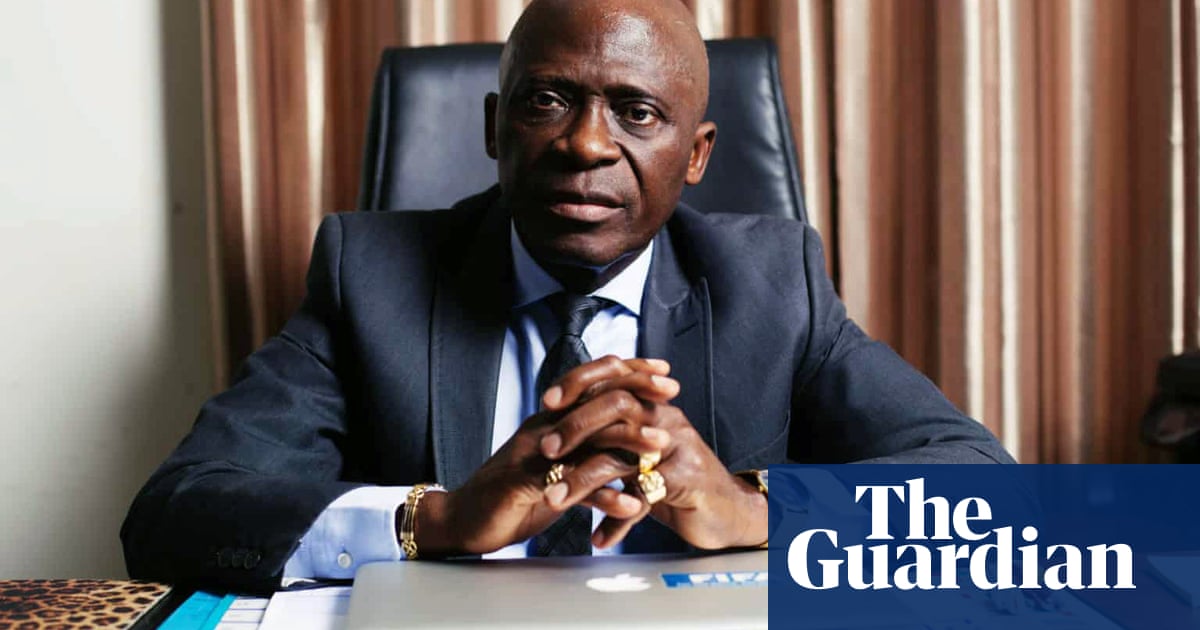
A South African child protection agency has launched legal action to force swimming executives in the country to hand over to state authorities an independent investigator’s report into allegations of historic sexual abuse involving minors.
Leading figures in South African swimming have been accused of failing to report the abuse claims to the police, as required under the country’s sexual offences legislation.
The Women and Men Against Child Abuse (WMACA) in South Africa and its advocacy manager, Luke Lamprecht, triggered a police inquiry last month by opening dockets – official documents in which a record is kept of a reported crime and the investigation conducted into that alleged crime – on Alan Fritz, the president of Swimming South Africa (SSA), and his fellow board member Ron Andrews, after claims that they failed to draw the allegations to the relevant authorities’ attention.
A third file was opened on a swimming coach who has been reported to police by two women alleging that they were sexually abused over a period of years in the late 1970s to mid-1980s. The coach was a fellow swimmer and a teenager at the time of the alleged offences. He strongly denies the claims.
Lamprecht, who with WMACA played a key role in securing the 2015 conviction of the former tennis pro Bob Hewitt on charges of rape and sexual assault of girls aged between 12 and 14 when he was their coach, told the Guardian: “We’re not judging. We’re simply requesting an investigation by the appropriate authority into the circumstances that gave rise to this [independent] report sent to SSA. The role of Mr Fritz and his organisation is to assist the police and prosecutor to get information needed for the state to run its case, not replace its role.”
In an echo of the #MeToo scandal that has swept across the world, advocates say the failure to deal with abuse accusations properly is a governance issue across many sports in South Africa. Olivia Jasriel, an abuse advocate and survivor of historic sexual assault by Hewitt, believes failures to tackle the issue extend to the South African Sports Confederation and Olympic Committee (Sascoc).
Barry Hendricks, elected president of Sascoc last Saturday, was among those who “excluded me from any feedback on progress” in implementing safeguarding policies, said Jasriel.
Hendricks said that he had referred Jasriel to Sascoc staff when she wrote to him in May 2019 after a conference at which he had promised delivery of safeguarding policies. He had then spent most of 2020 suspended pending the resolution of Olympic-committee in-fighting that ended with his reinstatement in September, when he was able to confirm that he would enter the race to become president.
Jasriel waits to be sent the safeguarding policy that was adopted at Sascoc’s general assembly in November last year. Since then, only two sports, rugby and gymnastics, have adopted the policy.
Hendricks wanted other sports to catch up, noting: “It is imperative that each member of Sascoc at national to club level have these policies and procedures as well as education programmes in place. That will take time.”
SSA has told survivors that it has a safeguarding policy but has not responded to requests for that policy to be sent to them, while there is no safeguarding policy posted on the federation’s website.
Hendricks said he was grateful to the Guardian for raising questions on “this very serious matter”. He acknowledged that there was much work to do, including posting the policy in the public domain on an “updated and upgraded” website still being built.
“All policies and programmes will be placed on this platform,” said Hendricks, while noting: “We still need to formulate our safeguarding procedures and this is one of critical focus areas currently under the helm of our 2nd vice-president Dr Debbie Alexander.”
In addition, Sascoc has named Patience Shikwambana as its safeguarding officer.
The new Sascoc board, which includes Fritz, would now meet “in two to three weeks” and safeguarding would be high on the agenda, Hendricks indicated. He said: “I regard the safeguarding programme as critical to protecting people in sport.”
Jasriel said: “A team can have as many meetings as they like. That’s not the same as getting things done. Nearly two years ago we were promised that things would get implemented. It hasn’t been done. I’ve been excluded from any feedback on progress of these policies. There’s nothing in the public domain and the vast majority of sports do not have this safeguarding policy in place. Someone needs to be accountable.”
She points to a letter she sent to Fritz in October 2019 requesting details of “the safeguarding policies and vetting procedures for coaches” at SSA.
Jasriel, head of the eponymous Jasriel Foundation working for “justice and healing for survivors of sexual abuse”, wrote to Fritz in November last year after sex-abuse scandals involving a water polo coach and a teacher at two public schools hit the headlines. Jasriel asked to see swimming’s “safeguarding policies and vetting procedures for coaches”.
Fritz replied to say that SSA “certainly share your sentiments on safeguarding of our children”, said that he would share the federation’s safeguarding policies with her and invited her to an executive meeting so that she could share her knowledge. But Jasriel never heard from him again.
“It is what makes it so impossibly hard for those who’ve been abused to come forward and report,” Jasriel said. “When you’re up against that kind of avoidance, the only thing you can do is turn to the law.”
After a formal meeting on 18 July this year with a former swimmer alleging abuse, Fritz hired an independent investigator to report and make recommendations. That report was handed to him in late September but since then the woman says she has not been informed of any further action.
“I think my complaint and the protection of young athletes are not a priority for Mr Fritz,” she told the Guardian.
She says she first put her allegations, including mention of “three other girls”, to Andrews in 2003 when he was the president of the provincial KwaZulu-Natal Swimming Association, but “nothing came of it. I got no feedback and there was no proper procedure for reporting.”
Two years after the South African high court ruled a 20-year time limit on reporting certain forms of child abuse was unconstitutional, the same woman brought her allegations back to swimming bosses, this time reporting to Fritz.
In accepting the complaint on 18 July Fritz told the woman that SSA’s role was “to protect her because she was an athlete” at the time of the abuse. Minutes of the meeting seen by the Guardian state: “From a healing point of view, it is incumbent upon [officials of SSA] to wrap [the woman] in cotton wool”.
However, Fritz, busy on the Olympic campaign trail, had still to arrange an emergency meeting of the SSA executive committee six weeks after he had first been informed by the independent investigator that the report and recommendations were ready for handing over. It is believed a meeting is now scheduled.
In the meantime, the woman’s faith in the process faded and she took Lamprecht’s advice and reported their allegations of sexual abuse to the police.
One of the women says: “The frustration of the past weeks has brought it all back, finding the courage to come forward and then watching it lead to nothing.
“There has been no suspension, no further action. I asked for a timeline but none has been sent. I asked for a copy of the investigator’s report that cites me and have been told I can’t see it on grounds of confidentiality. I haven’t been informed of any process; I don’t believe the matter has been reported to the full executive committee.”
Asked for comment, Fritz said: “I cannot confirm anything,” and requested questions be sent to him for his attorney. The Guardian has had no reply to any of the questions sent to him over the past 10 days.
Andrews said that he had “tried and tried very hard to remember” what had been reported to him in 2003 during a competition, while “at a swim gala it’s busy and you get approached by lots of people asking you questions”.
“When she approached me in my jurisdiction, and I must tell you at the time we had one or two other incidents … I’m more than convinced that I would have referred her to my secretary, so as woman to woman would present the facts for us to take it forward. Nothing ever came forward again.”
Told that the allegations had now been reported to the police, Andrews said: “She’s done the right thing, there’s no two ways about it.”
The SSA executive board member Penny Heyns, South Africa’s double Olympic swimming champion of 1996, said she had not been informed of the specifics of the allegations when approached by the Guardian more than a month after Fritz had been handed the independent investigator’s report. Leading the new Sports Voice safeguarding initiative, Heyns said she could not comment on the merits of the case but added: “We owe it to the youth of today to give them a safe environment.”












